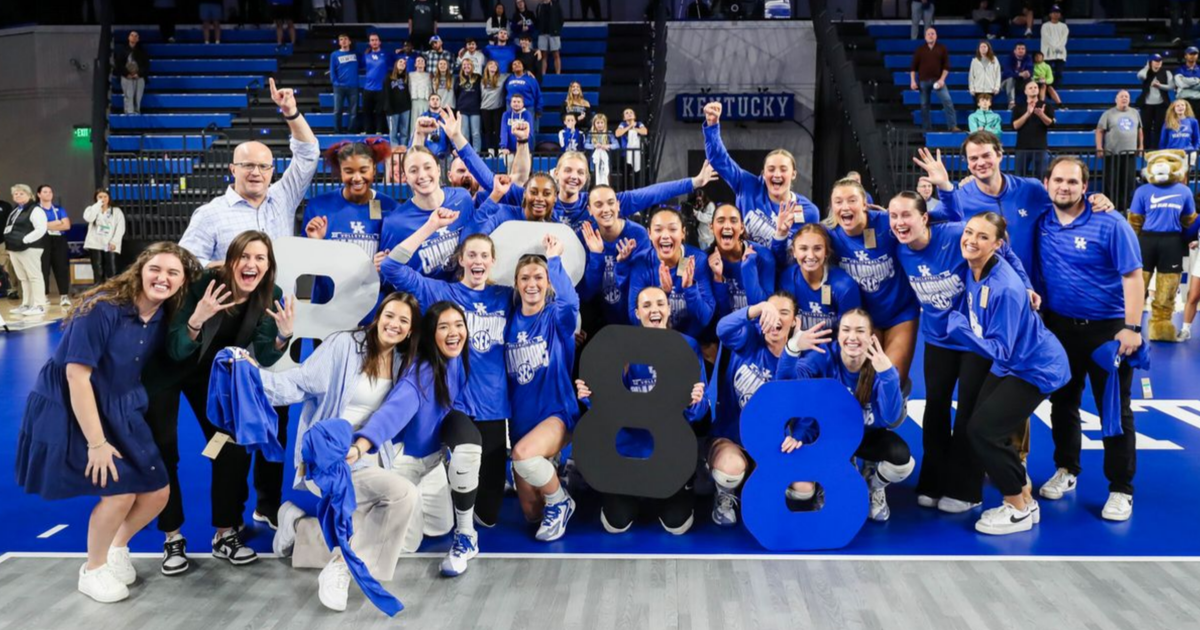Montana
Federal judge blocks Montana’s TikTok ban, which would have been the first of its kind

TikTok Music has launched on Wednesday in Australia, Singapore and Mexico to a small group of users.
Jaap Arriens | Nurphoto | Getty Images
A federal judge in Montana has blocked a law that would have resulted in a state-wide ban of TikTok starting on Jan. 1, 2024.
Judge Donald Molloy explained his rationale for issuing the preliminary ruling via a legal filing released Thursday, saying the state of Montana failed to show how the original SB 419 bill would be “constitutionally permissible,” among other reasons.
The ruling represents a setback for Montana, whose Governor Greg Gianforte signed into law the SB 419 bill in May, pitching it as helping “our shared priority to protect Montanans from Chinese Communist Party surveillance.”
“Despite the State’s attempt to defend SB 419 as a consumer protection bill, the current record leaves little doubt that Montana’s legislature and Attorney General were more interested in targeting China’s ostensible role in TikTok than with protecting Montana consumers,” judge Molloy wrote in the filing. “This is especially apparent in that the same legislature enacted an entirely separate law that purports to broadly protect consumers’ digital data and privacy.”
A TikTok spokesperson said in a statement the company is “pleased the judge rejected this unconstitutional law and hundreds of thousands of Montanans can continue to express themselves, earn a living, and find community on TikTok.”
However, the office of the Montana Attorney General said in a statement that the judge’s decision is merely “a preliminary matter at this point.”
“The judge indicated several times that the analysis could change as the case proceeds and the State has the opportunity to present a full factual record,” the Montana Attorney General office said. “We look forward to presenting the complete legal argument to defend the law that protects Montanans from the Chinese Communist Party obtaining and using their data.”
Before the judge’s preliminary ruling, Montana was set to become the first U.S. state to ban the popular video and social media app, which is owned by the China-based tech giant ByteDance.
ByteDance sued Montana in May to “prevent the state of Montana from unlawfully banning TikTok,” the company said at the time. Lawyers for the company said in court filings that Montana failed to support allegations that the Chinese government “could access data about TikTok users, and that TikTok exposes minors to harmful online content.”
In March, U.S. lawmakers raised questions about the relationship between the Chinese government and the app’s parent company ByteDance when they grilled TikTok CEO Shou Zi Chew during a hearing. The lawmakers were concerned that the Chinese Communist Party may be able to access the data of U.S. citizens, and have considered implementing a nation-wide ban on TikTok.
TikTok has tried to assuage national security concerns by emphasizing its “Project Texas” initiative, intended to ensure that the data of U.S. citizens remains in the country via the help of enterprise tech giant Oracle.
Watch: TikTok owner ByteDance axes hundreds of jobs in gaming unit

Montana
With No. 1 seed in hand, Montana State now looks toward FCS playoffs

Following a 34-11 victory over rival Montana to clinch the outright Big Sky Conference championship, Montana State received the No. 1 overall seed for the upcoming FCS playoffs when the bracket was announced Sunday.
The Bobcats (12-0) have a first-round bye and will host either No. 16-seed New Hampshire or Tennessee Martin in the second round on Saturday, Dec. 7.
Montana State coach Brent Vigen spoke with the media after the Selection Sunday show on ESPN, which the Bobcats and their fans gathered to watch at Worthington Arena.
For a full recap from Sunday’s event at Worthington Arena, see the video player above.
Montana
Brawl of the Wild Replay: No. 9 Montana at No. 2 Montana State

BOZEMAN — Second-ranked Montana State was seeking regular-season perfection when it welcomed rival Montana to Bobcat Stadium on Saturday, Nov. 23, 2024.
The Bobcats entered the 123rd Brawl of the Wild with an 11-0 overall record with a chance to finish 12-0 for the first time in program history and also win the outright Big Sky Conference championship.
The ninth-ranked Grizzlies, meanwhile, were 8-3 and aiming to play spoiler for Montana State while also improving their own seeding for the FCS playoffs.
Watch a condensed replay of the game between No. 2 Montana State and No. 9 Montana in the video above.
Montana
‘Yellowstone’ highlights influence behind a changing Montana

The popular “Yellowstone” TV series, set and filmed in Montana, taps into a lesser-known chapter of the state’s history: its settlement by Confederates and ex-Confederates during and after the Civil War.
I come to this story with a unique perspective. I’m a fourth-generation Montanan. I’m also a scholar of U.S. Western literary and cultural studies and left the state in my 20s to pursue a career in academia.
Then, during the pandemic, I returned to Montana for a time to lead a statewide cultural organization that connects Montana’s history and literature to its modern-day residents.
That’s why, for me, the story of the show’s protagonist, John Dutton III, who heads a wealthy-but-embattled Montana ranching family, is not just a cultural phenomenon. Rather, “Yellowstone” offers insights into the dynamics that are currently influencing a changing Montana.
Montana’s little-known legacy
One of the series’ prequels, “1883,” provides the crucial backstory for the Dutton family’s journey to Montana.
James Dutton, portrayed by Tim McGraw, was a former Confederate captain; his wife, Maggie, was a nurse for the Confederate Army. In leaving behind their war-torn lives to seek new opportunities, they mirror the historical trend that saw Confederate settlers moving West during and after the Civil War.
According to Montana historian and scholar Ken Robison, Confederate prisoners of war languishing in Union prisons were paroled to western territories like Montana. By 1864, two such parolees had discovered gold in what is still called Confederate Gulch, at the time one of the largest settlements in Montana Territory. Other settlements, such as Dixie Town and Jeff Davis Gulch, dotted the landscape. Montana’s territorial capital was briefly called Varina, named after the Confederate president’s wife.
Although there is no way to know for certain, it’s possible that during the latter half of the war, half of Montana Territory’s residents — maybe 30,000 — were pro-secession. Some had been in Confederate service; the rest shared their sentiments.
After the war, many of those Confederates stayed. By the late 1800s, Montana was home to 13 United Confederate Veterans organizations totaling 176 members. In 1916, the Montana Chapter of the Daughters of the Confederacy erected a Confederate memorial in Helena, the state capital; it stood for a century. The 1920s saw the rise of about 40 Ku Klux Klan chapters across the state to promote xenophobic policies against immigrants and racist policies against nonwhites. Today, Montana remains one of the whitest states in the U.S. — about 85% of Montanans are white; less than 1% are Black.
Recasting the ‘Lost Cause’
Numerous historical echoes surface briefly in “Yellowstone.”
In Season 2, there’s a violent confrontation involving a militia group that displays Confederate and “Don’t Tread on Me” flags. This subplot speaks to Montana’s long history as a hub for populist and anti-government movements. The Southern Poverty Law Center reports that Montana has 17 hate and anti-government groups, which include three defined as white supremacist or neo-Nazi.
This depiction of militia groups in “Yellowstone” represents the broader history of populist resistance in the American West. From the Sagebrush Rebellion of the 1970s to the Montana Freemen’s standoff with federal agents in the 1990s, Westerners have often resisted federal control over land and resources — tensions that perhaps trace back to the Confederacy’s own secession, a resistance rooted in defiance of federal authority, particularly over slavery.
After the Confederacy’s defeat, the “Lost Cause” narrative, in an attempt to preserve Southern pride, recast the South’s secession as a fight for states’ rights, and not a defense of slavery.
Those Lost Cause connections reverberate through John Dutton III’s relentless battle to preserve his family’s ranch. Fighting overwhelming political and economic pressures, Dutton remains steadfast in his determination to hold onto the land, even when it goes against his best interests.
This tenacity reflects the Lost Cause mindset — a clinging to a nostalgia-tinged, yet unattainable, past. Dutton embodies the archetype of the “aggrieved white man,” a figure central to many populist movements, who feels displaced from his former position of power in politics, work and family life.
Populist contradictions
It’s hard to discern to what degree recent changes in Montana can be attributed to “Yellowstone.” What is certain: Today’s longtime Montana residents find themselves exposed to a fresh set of political, economic and cultural forces.
Tourism and the local economy are up, due in part to the “Yellowstone” effect. But so are concerns about the rising costs of most everything, particularly houses.
These trends have been spurred, in part, by outsiders moving to Montana — newcomers who romanticize the state’s hardscrabble past and what they perceive as its current rough-hewn lifestyle.
What’s more, Montana has morphed from a purple state known for its political independence into a reliably conservative stronghold.
The drastic shift from purple to red solidified in 2020 with the election of a Republican governor after 16 years of Democratic leadership. It was further underscored by the defeat of Democratic Sen. Jon Tester by Republican Tim Sheehy in the 2024 election.
In “Yellowstone,” as Dutton is sworn in as Montana’s new Republican governor, he tells his constituents that he is “the opposite of progress” in response to changes that outside influences are bringing to the state.
Yet the politics of “Yellowstone” are “hard to pin down,” and the Duttons themselves espouse various versions of left- and right-wing populism as they simultaneously battle and embody the political and economic elite.
By the same token, Montanans resent wealthy outsiders but have given them political power by voting them into office.
Montana’s current governor, Greg Gianforte, is a tech millionaire, originally from Pennsylvania; Sheehy, similarly, is a wealthy out-of-stater.
Neither one might approve of the fictional Gov. Dutton’s proposed policy of doubling property and sales taxes for out-of-state “transplants” — though many Montanans probably would. For some, the rapid changes of the past few years have been, like life for the Dutton family, a challenge.
Randi Lynn Tanglen served as professor of English at Austin College in Texas (2008-2020), executive director of Humanities Montana (2020-2022), and is currently vice provost for faculty affairs at the University of North Dakota (2023-present). She holds degrees from Rocky Mountain College, the University of Montana and the University of Arizona.
-

 Business1 week ago
Business1 week agoColumn: Molly White's message for journalists going freelance — be ready for the pitfalls
-

 Science5 days ago
Science5 days agoTrump nominates Dr. Oz to head Medicare and Medicaid and help take on 'illness industrial complex'
-

 Politics7 days ago
Politics7 days agoTrump taps FCC member Brendan Carr to lead agency: 'Warrior for Free Speech'
-
/cdn.vox-cdn.com/uploads/chorus_asset/file/25739950/247386_Elon_Musk_Open_AI_CVirginia.jpg)
/cdn.vox-cdn.com/uploads/chorus_asset/file/25739950/247386_Elon_Musk_Open_AI_CVirginia.jpg) Technology6 days ago
Technology6 days agoInside Elon Musk’s messy breakup with OpenAI
-

 Lifestyle1 week ago
Lifestyle1 week agoSome in the U.S. farm industry are alarmed by Trump's embrace of RFK Jr. and tariffs
-

 World7 days ago
World7 days agoProtesters in Slovakia rally against Robert Fico’s populist government
-

 News7 days ago
News7 days agoThey disagree about a lot, but these singers figure out how to stay in harmony
-

 News7 days ago
News7 days agoGaetz-gate: Navigating the President-elect's most baffling Cabinet pick


















